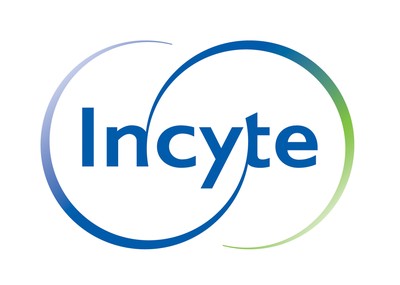Data from ACTT-2 Trial of Baricitinib in Hospitalized COVID-19 Patients Supportive of the EUA Published in New England Journal of Medicine
"These published data from a rigorous, double-blind, placebo-controlled trial are critical in helping the scientific community make better-informed treatment decisions to improve clinical outcomes for patients," said
"Presently, there are limited published placebo-controlled data assessing treatment options to manage the symptoms and progression of COVID-19," said
Read the full NIAID press release on ACTT-2 results here.
Baricitinib, an oral JAK inhibitor, was discovered by
For information on the authorized use of baricitinib and mandatory requirements under the EUA, please review the FDA Letter of Authorization, Fact Sheet for Healthcare Providers and Fact Sheet for Patients, Parents and Caregivers (English; Spanish).
Authorized Use Under the EUA and Important Safety Information for baricitinib (in
Baricitinib is authorized for use under an Emergency Use Authorization (EUA) in combination with remdesivir, for treatment of suspected or laboratory confirmed coronavirus disease 2019 (COVID-19) in hospitalized adults and pediatric patients 2 years of age or older, requiring supplemental oxygen, invasive mechanical ventilation, or extracorporeal membrane oxygenation (ECMO).
Baricitinib has not been approved for the treatment of COVID-19, but has been authorized for emergency use by the FDA. Baricitinib is authorized under an EUA only for the duration of the declaration that circumstances exist justifying the authorization of the EUA of baricitinib under Section 564(b)(1) of the Act, 21 U.S.C. § 360bbb-3(b)(1), unless the authorization is terminated or revoked sooner.
Important Safety Information about baricitinib for COVID-19
The following provides essential safety information on the unapproved use of baricitinib under the Emergency Use Authorization.
Warnings
Serious Infections: Serious infections have occurred in patients receiving baricitinib. Avoid the use of baricitinib with known active tuberculosis. Consider if the potential benefits outweigh the potential risks of baricitinib treatment in patients with active serious infections other than COVID-19 or chronic/recurrent infections.
Thrombosis: In hospitalized patients with COVID-19, prophylaxis for venous thromboembolism is recommended unless contraindicated. If clinical features of deep vein thrombosis or pulmonary embolism occur, patients should be evaluated promptly and treated appropriately.
Abnormal Laboratory Values: Evaluate at baseline and thereafter according to local patient management practice. Monitor closely when treating patients with abnormal baseline and post-baseline laboratory values. Follow dose adjustments as recommended in the Fact Sheet for Healthcare Providers for patients with abnormal renal, hematological and hepatic laboratory values. Manage patients according to routine clinical guidelines.
Hypersensitivity: If a serious hypersensitivity occurs, discontinue baricitinib while evaluating the potential causes of the reaction.
See Warnings and Precautions in the FDA-approved full Prescribing Information for additional information on risks associated with longer-term treatment with baricitinib.
Serious Side Effects: Serious venous thrombosis, including pulmonary embolism, and serious infections have been observed in COVID-19 patients treated with baricitinib and are known adverse drug reactions of baricitinib.
There are limited clinical data available for baricitinib use in coronavirus 2019 (COVID-19). Additional information regarding baricitinib for its FDA-approved indication, including safety information, may be found in the full Prescribing Information, including Boxed Warning about Serious Infections, Malignancies, and Thrombosis, and Medication Guide.
Use in Specific Populations
Pregnancy: Baricitinib should be used during pregnancy only if the potential benefit justifies the potential risk for the mother and the fetus.
Renal Impairment: There are limited data for baricitinib in patients with severe renal impairment. Baricitinib is not recommended for patients who are on dialysis, have end-stage renal disease, or have acute kidney injury.
Hepatic Impairment: Baricitinib has not been studied in patients with severe hepatic impairment. Baricitinib should only be used in patients with severe hepatic impairment if the potential benefit outweighs the potential risk.
BC HCP EUA ISI 19NOV2020
About
Lilly is bringing the full force of its scientific and medical expertise to attack the coronavirus pandemic around the world. Existing Lilly medicines are now being studied to understand their potential in treating complications of COVID-19, and the company is collaborating with two partner companies to discover novel antibody treatments for COVID-19. Lilly is testing both single antibody therapy as well as combinations of antibodies as potential therapeutics for COVID-19. Click here for resources related to Lilly's COVID-19 efforts and here for baricitinib's EUA.
About baricitinib (OLUMIANT ®)
OLUMIANT is a once-daily, oral JAK inhibitor approved in the
In
About
About
Incyte is a Wilmington,
Cautionary Statement Regarding Forward-Looking Statements
This press release contains forward-looking statements (as that term is defined in the Private Securities Litigation Reform Act of 1995) about OLUMIANT (baricitinib) as a potential treatment for patients with COVID-19 and as a treatment for patients with rheumatoid arthritis and other conditions, as well as its supply, and reflects
|
Refer to: |
|
|
|
|
|
|
|
|
|
![]() View original content to download multimedia:http://www.prnewswire.com/news-releases/data-from-actt-2-trial-of-baricitinib-in-hospitalized-covid-19-patients-supportive-of-the-eua-published-in-new-england-journal-of-medicine-301191422.html
View original content to download multimedia:http://www.prnewswire.com/news-releases/data-from-actt-2-trial-of-baricitinib-in-hospitalized-covid-19-patients-supportive-of-the-eua-published-in-new-england-journal-of-medicine-301191422.html
SOURCE


